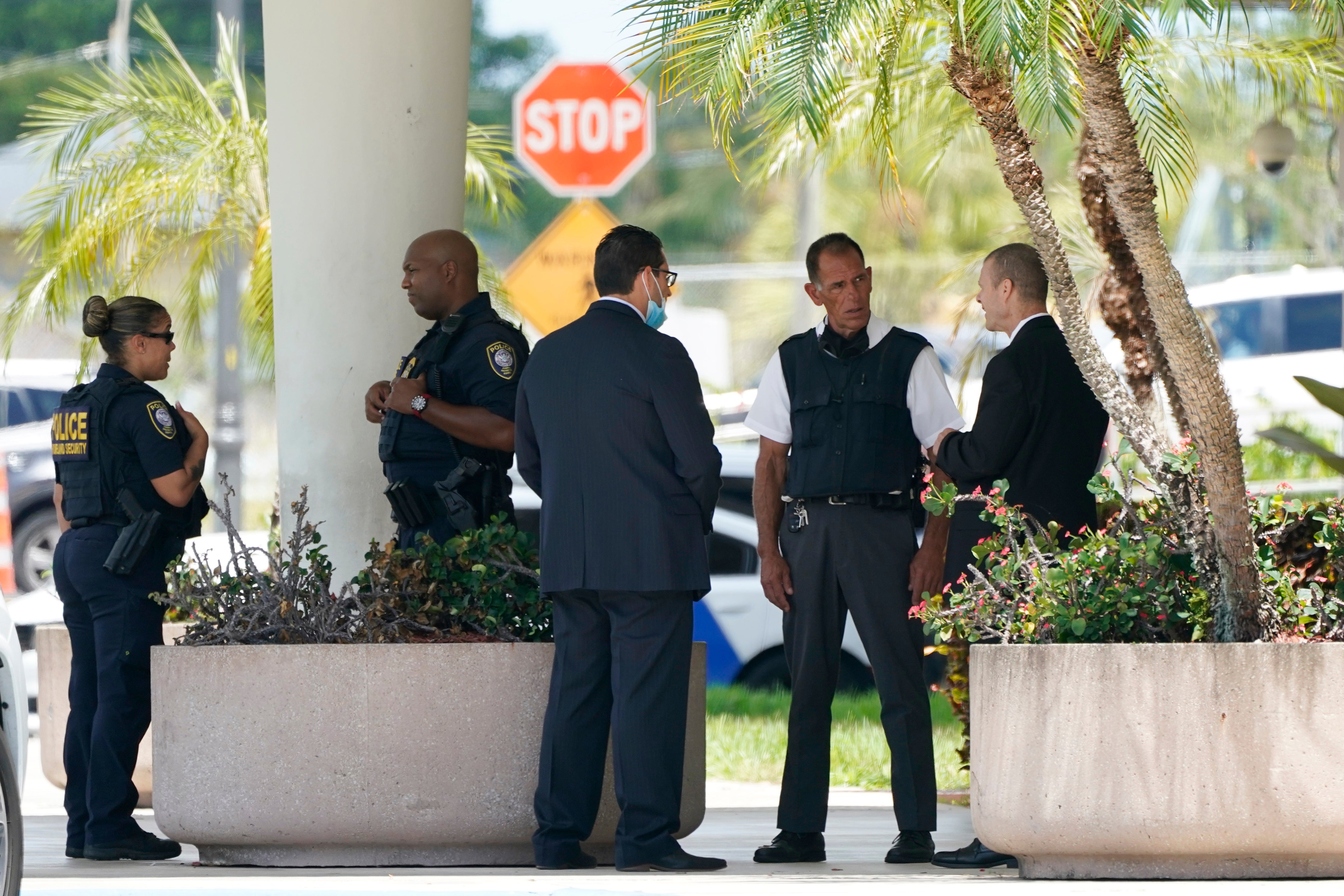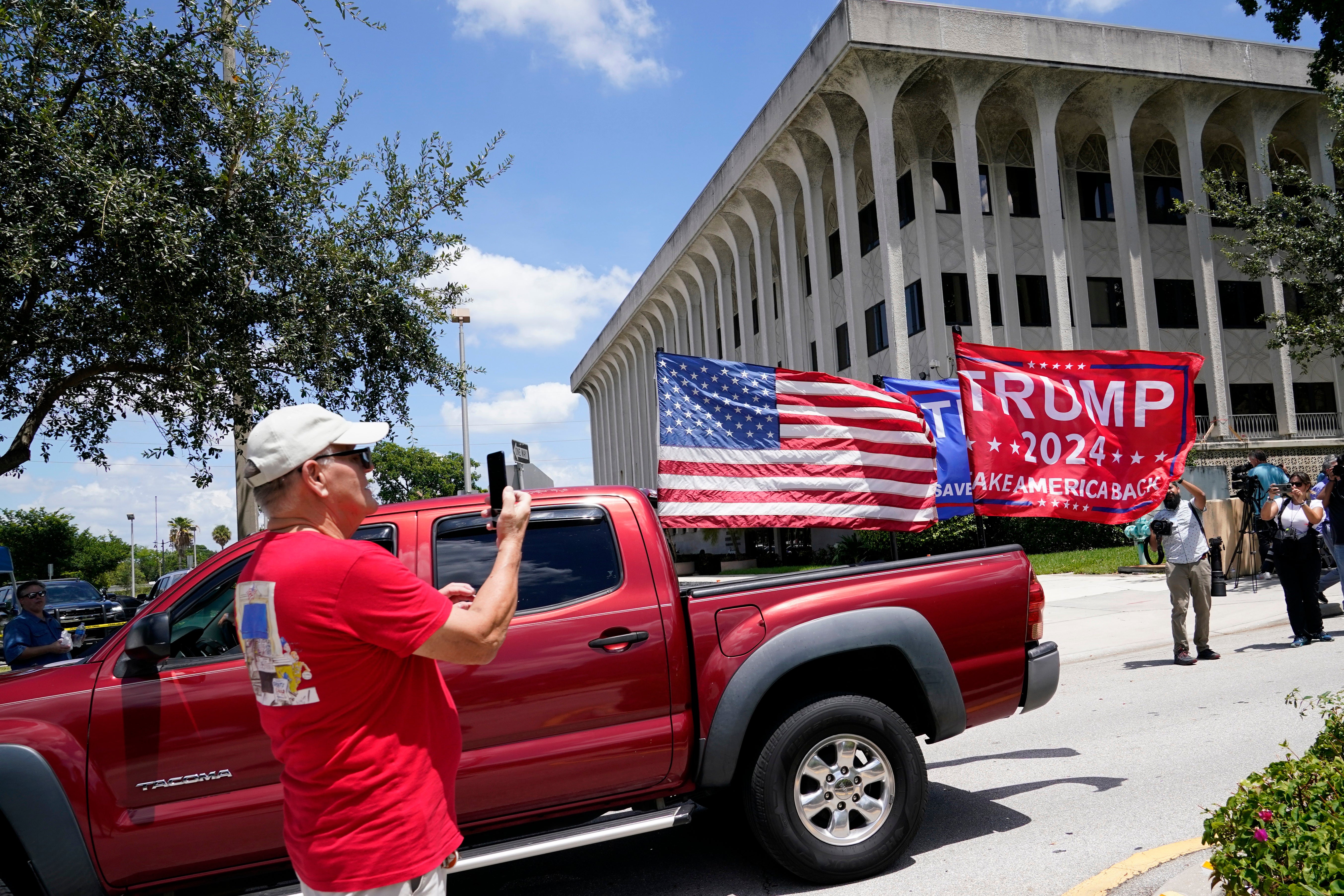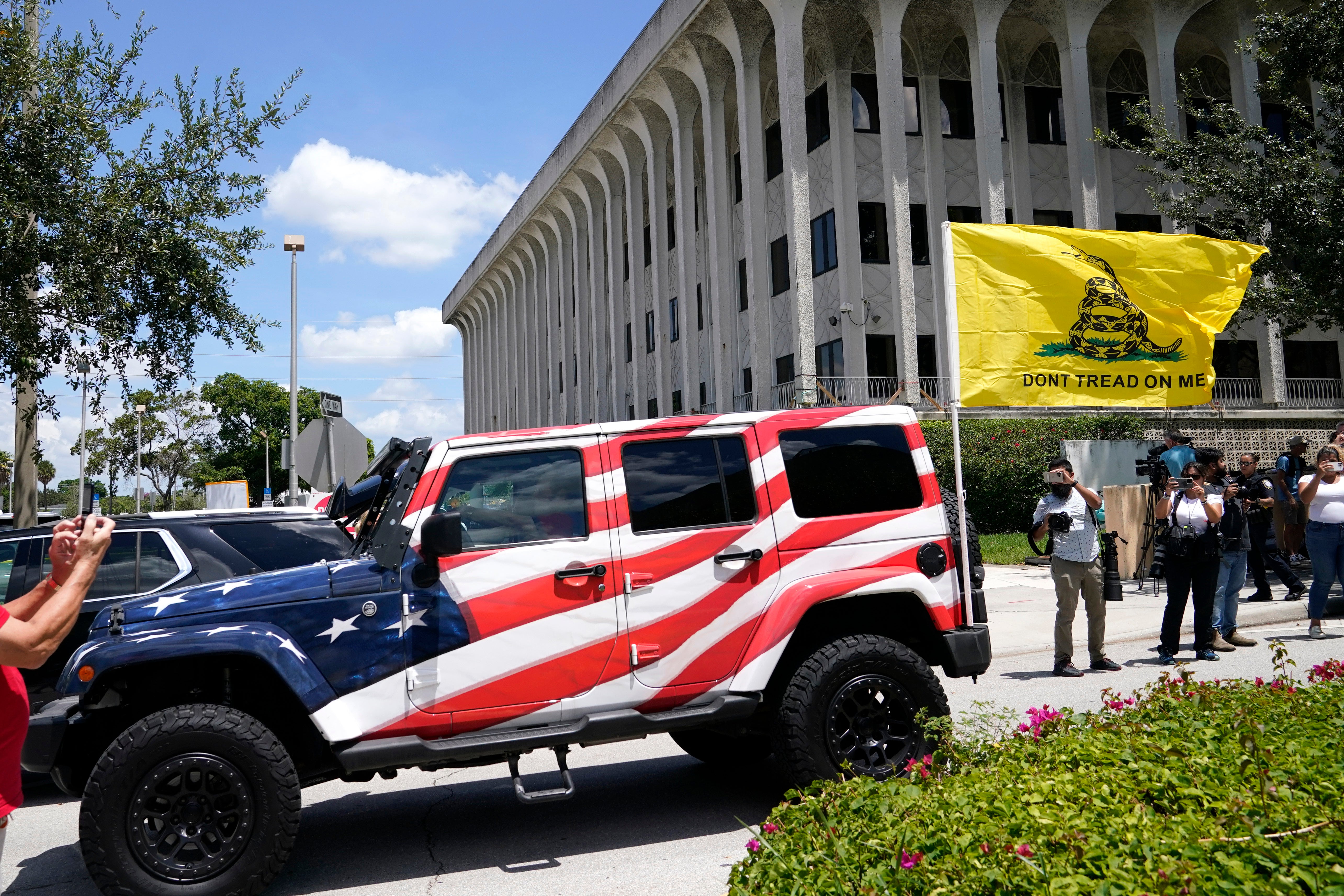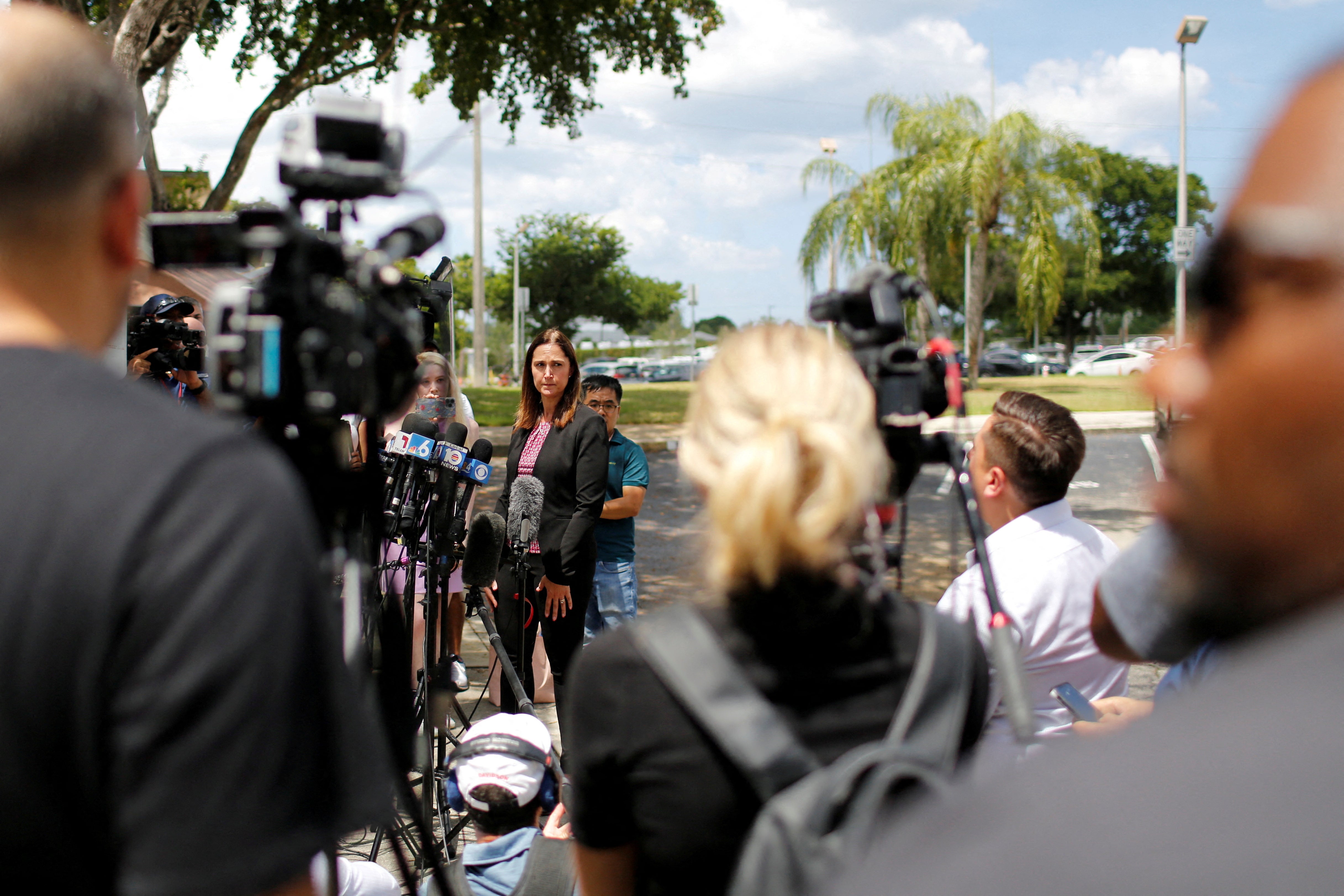Trump supporters circle Florida courthouse as judge weighs redacted release of FBI raid affidavit
Judge says parts of affidavit ‘could be presumptively unsealed’
Your support helps us to tell the story
From reproductive rights to climate change to Big Tech, The Independent is on the ground when the story is developing. Whether it's investigating the financials of Elon Musk's pro-Trump PAC or producing our latest documentary, 'The A Word', which shines a light on the American women fighting for reproductive rights, we know how important it is to parse out the facts from the messaging.
At such a critical moment in US history, we need reporters on the ground. Your donation allows us to keep sending journalists to speak to both sides of the story.
The Independent is trusted by Americans across the entire political spectrum. And unlike many other quality news outlets, we choose not to lock Americans out of our reporting and analysis with paywalls. We believe quality journalism should be available to everyone, paid for by those who can afford it.
Your support makes all the difference.Trump supporters were seen circling the courthouse in West Palm Beach in southern Florida where a US Magistrate Judge said he was “inclined” to rule that the Department of Justice should release some of the affidavit for the FBI raid on Mar-a-Lago.
Members of the press also descended on the courthouse as they attempted to reveal the information that formed the basis for the search of former President Donald Trump’s home in the Sunshine State.
Trucks with Trump 2024 flags were seen driving around the building.
Judge Bruce Reinhart gave the government one week to suggest redactions for a version of the warrant affidavit to ultimately be released, saying that parts of the document “could be presumptively unsealed”.
“Whether those portions would be meaningful for the public or the media,” wasn’t his issue to rule on, he added, according to The New York Times.




Judge Reinhart’s ruling was a compromise between the Department of Justice (DoJ) and a number of media outlets.
While DoJ wanted the affidavit to remain fully sealed during the ongoing investigation into Mr Trump and how he handled classified documents, the media outlets wanted its complete public release.
Warrant affidavits are written and sworn by federal agents before a search is allowed to go ahead. They contain specific information concerning criminal probes and are usually sealed until the point at which charges are revealed.
Judge Reinhart ruled that the government must send suggested redactions by 25 August at 12pm. At that point, he’ll look over the proposal and make a judgement on its suitability.
“This is going to be a considered, careful process,” he said, according to The Times.
The lawyer representing media outlets Dow Jones & Company, Inc and ABC, Deanna Shullman, told the assembled press after the hearing that “this is a proceeding that is about the credibility of all the players. So whether the judge is doing his job, whether the DOJ is doing its job, that is the proper function of these access proceedings and why the public is entitled to access – that is the public interest. We are entitled to monitor the affairs of our government at all levels and that is the interest in essence that we were asserting today”.
“None of the media intervenors wants to jeopardize the safety or security of a confidential informant – it is very common in these situations that information that would lead to the disclosure of their identity is kept secret,” she added, according to CNN. “However, it is important to note that simply saying somebody works for a particular agency is not sufficient. Perhaps saying their title, their post, the number of years they have been in position and other identifiers may get us there, but the generic fact that there are confidential informants working with the government is not something that I would think is subject to protection.”
Jay Bratt of the national security division at DOJ argued during the hearing that the release of the affidavit would “provide a roadmap to the investigation”.
“In this case, the court has found probable cause there’s a violation of one of the obstruction statutes, and that evidence of obstruction would be found at Mar-a-Lago,” he said concerning worries at the department that possible witnesses may become unwilling to cooperate if too much information was released.
He added that the affidavit also held “substantial grand jury information”.




Join our commenting forum
Join thought-provoking conversations, follow other Independent readers and see their replies
Comments